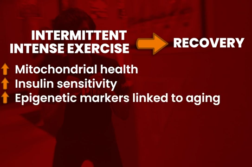CINCINNATI, Ohio. (Ivanhoe Newswire) — We’ve all heard warnings about BPA; a chemical found in plastics and personal care products. Studies show that nearly 90% of Americans have detectable levels of BPA in their bodies. Now, new research reveals this everyday exposure is tied to changes in the heart’s electrical system.
You can find it in food can linings, cash register receipts, eye glass lenses, baby bottles and even makeup. These are environmental phenols: Chemicals in products we touch every day.
“Phenols are a wide variety of chemicals. The best-known example is BPA,” Hong-Sheng Wang, PhD, professor of pharmacology at the University of Cincinnati told Ivanhoe.
University of Cincinnati researchers studied 600 people. Urine tests and EKGs found higher exposure was linked to changes in heart rhythms.
“The electrical conduction literally keeps us alive. If it gets altered in any way, you could die immediately,” explained Jack Rubinstein, MD, cardiologist & professor of medicine at the University of Cincinnati.
In women, BPA and BPF slowed signals between heart chambers. In men, triclocarban, once used in soaps, altered how the heart resets.
“I wasn’t expecting this kind of striking sex-specific,” said Prof. Wang.
The changes were small, but they add to growing evidence that everyday chemical exposures matter.
“Healthy individuals should not be affected by this. But if you find a person that’s genetically predisposed, that is older, these can lead to potential changes,” warned Dr. Rubinstein.
It’s a reminder that chemicals in products we use every day may have hidden effects on our health.
This is the first large study in people to link common chemicals like BPA to changes in how the heart’s electrical system works. Researchers say the next step is to study who may be most at risk and how to reduce everyday exposure.
Contributors to this news report include: Marsha Lewis, Producer; Matt Goldschmidt, Videographer; Roque Correa, Editor.
Sources:
https://www.epa.gov/sites/default/files/2015-05/documents/biomonitoring-bpa.pdf
https://www.niehs.nih.gov/health/topics/agents/sya-bpa
* For More Information, Contact: Hong-Sheng Wang, PhD
Professor of Pharmacology at the University of Cincinnati
and
Megan Burgasser
Public Information Officer, Media Relations + Content Marketing + Communications at the University of Cincinnati
Free weekly e-mail on Prescription: Health from Ivanhoe. To sign up: http://www.ivanhoe.com/ftk



